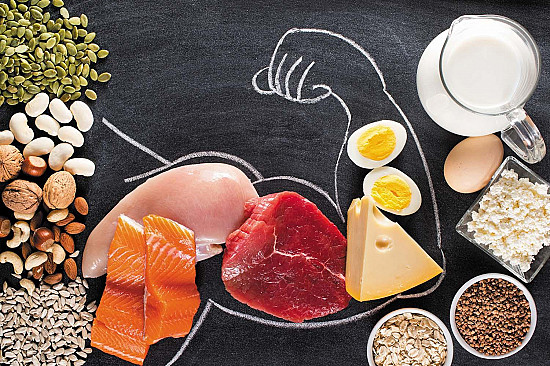
What are somatic workouts?

How to curb your stress eating

How to spot Parkinson’s disease symptoms

8 simple ways to reduce ultra-processed foods in your diet

Heart failure symptoms in women: How they’re different

GERD diet: Foods to avoid to reduce acid reflux

Strong is the new skinny

Everyday habits that sneakily weaken your bones

Don’t wait to get help for back pain

Correcting how you walk may ease osteoarthritis knee pain
Struggling with emotional eating?
Learn to control the cycle by recognizing causes and triggers.

Some people cope with difficult situations by reaching for comfort food. Chowing down on ice cream or macaroni and cheese can make everything seem like it's going to be okay. And there may be a reason why, according to the Harvard Special Health Report Lose Weight and Keep It Off.
Turns out, there are parts of the brain that are rewarded from eating high-fat or high-sugar foods. And more than a decade of psychological research suggests that any behavior that is rewarded is likely to be repeated.
However, eating comfort food when things get tough—also known as emotional eating or stress eating—is not a solution to life's challenges. It only works temporarily. Worse, it causes longer-term distress if it brings about weight gain.
Causes of emotional eating
You may be able to stop stress eating or emotional eating by figuring out why you need comfort food. Does it calm you down, cheer you up, compensate you for a tough day, or some combination? Recognizing these thought patterns can make it easier to resist giving in. It also helps to realize that emotional eating doesn't solve the problem that made you upset.
Know your emotional eating triggers
Another way to control emotional eating is to figure out what your triggers are. Keep a food diary that records not only what and how much you ate, but also how you felt at the time.
Once you recognize a pattern, develop a strategy to break it. For instance, if you often eat because you think you deserve it after a tough day, remember that you also deserve to lose weight, feel healthy, and be proud of yourself. If you eat because of stress, learn to dial back that stress. Yoga, meditation, and regular exercise can help reduce stress levels.
Distract yourself
The best distractions from emotional eating are things that take only about five minutes—just long enough to help you switch gears.
Some ideas for switching gears include:
- going for a five-minute walk
- sitting outside
- putting on your favorite music and dancing
- calling a close friend to chat
The more ways you can think of to distract yourself, the easier it will become over time to stop stress eating. Instead, resisting will become your new habit.
Seeking help
If you're unsuccessful trying to stop stress eating on your own, consider turning to a therapist for cognitive behavioral therapy (CBT). CBT encourages you to discover and expose negative and unproductive ways of thinking—such as grabbing that chocolate bar—and teaches you to replace these thinking patterns with more helpful ones.
Then, next time you have stressful situation, you might say to yourself, "I'm really upset, but if I eat to soothe myself, I'll feel upset about my weight, too. Instead, I'll go for a walk so I can calm down and feel better."
It may take a combination of approaches to stop stress eating. But becoming aware of the problem is a good first step to breaking the cycle.
– By Heidi Godman
Executive Editor, Harvard Health Letter
Disclaimer:
As a service to our readers, Harvard Health Publishing provides access to our library of archived content. Please note the date of last review or update on all articles.
No content on this site, regardless of date, should ever be used as a substitute for direct medical advice from your doctor or other qualified clinician.

What are somatic workouts?

How to curb your stress eating

How to spot Parkinson’s disease symptoms

8 simple ways to reduce ultra-processed foods in your diet

Heart failure symptoms in women: How they’re different

GERD diet: Foods to avoid to reduce acid reflux

Strong is the new skinny

Everyday habits that sneakily weaken your bones

Don’t wait to get help for back pain

Correcting how you walk may ease osteoarthritis knee pain
Free Healthbeat Signup
Get the latest in health news delivered to your inbox!
Sign Up




